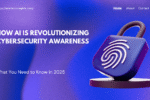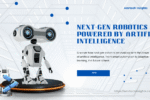Which Jobs Are Not AI-Replaceable?
The development of artificial intelligence sparks discussions about job security across industries. What Jobs Can Not Be Replaced with AI-Even though AI excels in data analysis and repetitive tasks, humans are still better suited for certain jobs. Let’s look at professions that need complicated decision-making, sensitivity, and creativity—skills that robots cannot duplicate.
1. Medical Professionals: The Healing Power of Human Touch
Surgeons, nurses, and doctors all benefit greatly from empathy and flexibility. Often, diagnosing disorders requires a sophisticated judgment that surpasses algorithms. A doctor, for example, may pick up on slight patient distress that AI overlooks. Furthermore, emergency operations necessitate solving problems in real time under erratic conditions.
AI is capable of analyzing medical pictures, but human intuition is required to interpret the results in the particular context of each patient. Additionally, nurses offer emotional support throughout the healing process, which builds trust that no robot can match. The ethical and emotional aspects of healthcare guarantee that people will always be indispensable.
2. Creative Industries: The Domain of Imagination-What Jobs Can Not Be Replaced with AI
Musicians, painters, and writers produce works influenced by their experiences. AI might create a song or a picture; human emotion is what creates originality. While a marketer creates ads that appeal to particular populations, a novelist weaves cultural subtleties.
Moreover, risk-taking and experimenting are essential components of creativity. Artists create by breaking patterns, whereas machines obey them. Imagine a designer reinventing trends or a filmmaker fusing genres. These positions avoid AI by thriving on uncertainty.
3. Expert Trades: Getting to Know the Real World-What Jobs Can Not Be Replaced with AI
Every day, carpenters, electricians, and plumbers deal with practical issues. It takes tactile dexterity and spatial awareness to fix a leaking pipe. Every job site has its set of difficulties, requiring flexibility that no robot can now provide.
Unpredictable surroundings are difficult for AI to handle. For instance, fixing the wiring in a house that is a century old requires both manual accuracy and historical understanding. Communication, another human strength, develops relationships with clients in these professions.

4. Education: Minds Are Shaped by Mentorship
Teachers encourage critical thinking and inquiry. A professor directs research through mentoring, whereas a math tutor adapts explanations to a student’s preferred method of learning. While AI technologies can enhance instruction, they lack the enthusiasm that inspires students.
Additionally, classrooms promote emotional development and social skills. A teacher must possess emotional intelligence to arbitrate disputes or support timid pupils. Education is a human connection, not only the dissemination of knowledge.
5. Mental Health Professionals: Handling Emotional Difficulties-What Jobs Can Not Be Replaced with AI
Counselors and therapists address very intimate issues. Empathy, trust, and moral discernment are all necessary for trauma healing. An AI chatbot may provide coping mechanisms, but it is unable to read body language or tone to identify underlying discomfort.
Mental health practitioners modify their approaches in response to their clients’ responses. For example, if a patient starts to feel upset, a psychologist may change their methods. Humans continue to have this dynamic response.
6. Leadership Positions: Progress Is Driven by Vision
High-stakes decisions are made by entrepreneurs, managers, and CEOs. Running a business requires balancing data with ethics, culture, and long-term goals. An AI may be able to streamline supply chains, but it cannot organize a team in an emergency.
Leaders manage uncertainty as well. Product launches in erratic markets require risk assessment and insight. Furthermore, algorithms lack the emotional intelligence needed to resolve problems in the workplace.
7. Emergency Responders: Bravery During Pandemonium
Paramedics, police officers, and firefighters work under tremendous strain. In situations that are constantly changing, saving lives frequently calls for quick decisions. A firefighter assesses the building’s structural integrity while rescuing stranded residents—tasks too complicated for current AI.
Moral decisions are also a part of these responsibilities. During a tragedy, a paramedic may prioritize patients while balancing moral conundrums that no machine can resolve on its own.
8. Research and Development in Science: Discovery Is Driven by Curiosity
Engineers and scientists explore new frontiers through experimentation. It takes trial and error and innovative problem-solving to find a new medication. While AI can digest data more quickly, humans are still able to link different ideas and generate theories.
A climate scientist, for instance, uses intuition to design field studies. Curiosity, which algorithms lack, is a quality that drives R&D.
Why the AI Revolution Doesn’t Affect These Jobs
Three important factors protect these responsibilities:
Emotional Intelligence: Being able to recognize complex emotions promotes trust in leadership, therapy, and medical treatment.
Creativity: Human imagination is the source of innovation in the arts, sciences, and industry.
Adaptability: Real-time problem-solving is necessary while navigating uncertain circumstances.
AI is not self-aware or conscious. Although it adheres to preprogrammed logic, it is unable to mimic human ethics or passion.
Getting Ready for a Future of Collaboration
Instead of being afraid of AI, professionals can use it to their advantage. Designers utilize generative tools to generate ideas, and doctors use AI diagnoses to improve accuracy. Employees who improve their critical thinking and emotional intelligence will remain relevant.

In conclusion, AI and humans are better off together.
Although AI is changing sectors, human talents will still be necessary. Jobs that need innovation, sensitivity, and flexibility will prosper. We can ensure our position in the workforce of the future by concentrating on what makes us uniquely human.
Keep up with AI developments while remembering your unique advantages. For additional information, bookmark this site and come back as we revise our approaches to living with technology!



